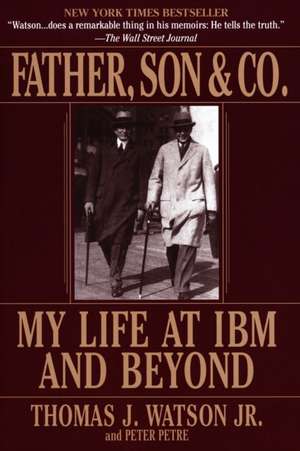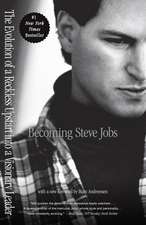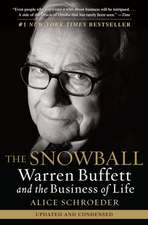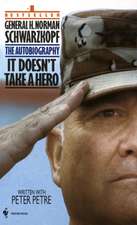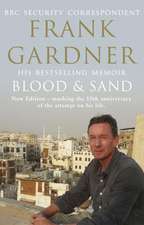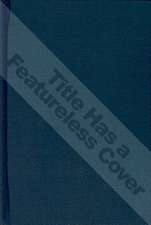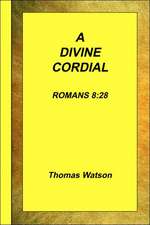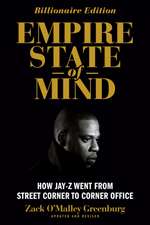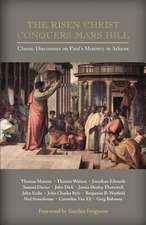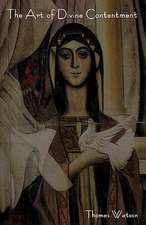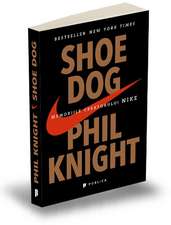Father, Son & Co.: My Life at IBM and Beyond
Autor Thomas R. Hutson, Peter Petreen Limba Engleză Paperback – 31 ian 2000
In the course of sixty years Thomas J. Watson Sr. and his son, Thomas J. Watson Jr., together built the international colossus that is IBM. This is their story: a riveting and revealing account of two men who loved each other--and fought each other--with a terrible fierceness.
But along with the story of a father and son, this is IBM's story too. It chronicles the management insights that shaped its course and its unique corporate culture, the style that made Thomas Watson Sr. one of America's most charismatic bosses, and the daring decisions by Thomas Watson Jr. that transformed IBM into the world's largest computing company. One of the greatest business-success stories of all time, Father, Son & Co. is a moving lesson for fathers who dream for their children, as well as a testament to American ingenuity and values, told in a disarmingly frank and eloquent voice.
Promising to remain an important business reference as we move into the next century, FATHER, SON & CO. takes a look at the management insight that helped to shape IBM's course and unique corporate culture. It looks at Watson, Sr., one of America's most charismatic bosses, and Watson, Jr., who spurred IBM into the computer age.
Ten years after its original publication, FATHER, SON & CO. remains a uniquely honest book. Watson's willingness to write about the loving but ferociously combative relationship he had with his father and the turbulent battles behind some of IBM's most far-reaching decisions gives readers rare insights into the realities of leadership. -->
Preț: 161.36 lei
Nou
30.88€ • 32.12$ • 25.88£
Carte disponibilă
Livrare economică 20 februarie-06 martie
Specificații
ISBN-10: 0553380834
Pagini: 512
Dimensiuni: 154 x 228 x 31 mm
Greutate: 0.77 kg
Editura: Bantam
Extras
When my father died in 1956--six weeks after making me head of IBM--I was the most frightened man in America. For ten years he had groomed me to succeed him, and I had been the young man in a hurry, eager to take over, cocky and impatient. Now, suddenly, I had the job--but what I didn't have was Dad there to back me up. I'd heard so many stories about sons of prominent men failing in business, and I could imagine their devastation at finding themselves unable to fill their fathers' shoes. I worried I'd end up the same way, but after my father had been dead a year I announced to my wife: "I've made it through twelve months without the old boy around! "
I went another year, and then another. The computer era was beginning and IBM was able to capitalize on it: while I was chief executive the company grew more than tenfold. I like to think that Father would have been impressed with the $7.5 billion-a-year business I left behind when I resigned in 1971. He had always predicted it would someday be the biggest business on earth.
I was so intimately entwined with my father. I had a compelling desire, maybe out of honor for the old gentleman, maybe out of sheer cussedness, to prove to the world that I could excel the same way he did. I never declared myself winner in that contest, because many of my decisions were based on policies and practices learned at his knee. But I think I was at least successful enough that people could say I was the worthy son of a worthy father.
It could have turned out very differently. The kind of privileged upbringing I had--private school, world travel, wealth--often leads to disaster for a son. I knew I was supposed to follow in my father's footsteps, but I did not see how that was possible. I was in awe of the man, yet we both had such hot tempers that it was hard for me to be in the same room with him, much less try to learn from him how to run a company.
I didn't have much motivation as a youth. At Brown University, I spent so much time flying airplanes and fooling around that I barely graduated. In the yearbook you had to have a line next to your photograph. The only thing in mine was the name of the prep school I'd gone to. There was nothing else to say. I had no distinctions, no successes of my own, and only a vague notion of how to be sympathetic and understanding to others. I was totally qualified to be either a playboy or an airplane bum.
If it hadn't been for World War II, I might never have become my own man. After 1939 my favorite recreation, flying, suddenly became serious business. I joined the Air Force as a pilot and learned to be responsible for an airplane full of men. The military took me far outside my father's influence, and by 1943 I had made it to lieutenant colonel. Though I never got promoted beyond that, I came back from the war confident, for the first time, that I might be capable of running IBM. But I'd been so unimpressive before the war that it was hard for my father to believe it. It took him years to convince himself that I'd changed, and I don't think he was ever completely sure. You can see that in the photograph of us that appeared in the New York Times when he turned IBM over to me. It shows us in our pin-striped suits, shaking hands in front of a bookcase. On my face is a look of great self-assurance and I'm obviously enjoying the occasion tremendously; but on Dad's face there is a faint, uncertain smile.
He ran IBM for forty-two years and I ran it for fifteen--all told, nearly six decades of Watson management. My job was to lead the company into the computer business, but it was he who put IBM on the map. By the time I joined the Air Force he had built the business from almost nothing to revenues of nearly forty million dollars a year. IBM was still really an insignificant part of the American industrial scene, but thanks to T.J.'s genius for selling, it was fast growing and highly profitable, and it attracted a lot of attention. Father knew how to project an image as well as any salesman who ever lived. At the New York World's Fair of 1939 there was a General Motors Day, a General Electric Day, and an IBM Day--two elephants and a gnat all getting the same treatment. We even had Mayor La Guardia as our guest at the Fair. President Franklin Roosevelt, whose confidant Father had become, sent a greeting by telegram.
During the ten years after World War II Father taught me his business secrets as we worked together. It was a stormy relationship. In public he would praise me lavishly, and I'd hear from other people the nice things he was saying about my shrewdness and brains and talent as a manager. But in private Father and I had terrible fights that led us again and again to the brink of estrangement. These arguments would frequently end in tears, me in tears and Dad in tears.
We fought about every major issue of the business--how to finance IBM's growth, whether to settle or fight a federal antitrust suit, what role in IBM other members of our family ought to play. From around 1950 my goal--one of the things on which we never saw eye to eye--was to push into computers as fast as possible. That meant hiring engineers by the thousands and spending dollars by the tens of millions for new factories and labs. The risk made Dad balk, even though he sensed the enormous potential of electronics as early as I did.
When I finally took over I was excited about change. Computing was a brand-new industry, and I always felt that if IBM didn't grab the opportunity, somebody else would. So we taught ourselves to ride a runaway horse, expanding on a scale that no company has ever matched. We grew so fast that some years we had to cope with the problem of training twenty thousand or more new employees.
I kept myself where employees could see me, out in front, setting a fast pace. I had learned from my father that by seizing opportunities for dramatic action--personally answering an employee's complaint, slashing the price of a new computer that failed to perform as promised--I could set an example of how IBM should do business. At the same time I had yearnings outside the company that would have been hard for my father to understand. In the top drawer of my desk I kept a list of adventures, like climbing the Matterhorn and retracing the South Sea voyages of Captain Cook, for which I simply had no time.
All that changed in 1970, when I had a heart attack. I was only fifty-six, and I think many executives would have been back in the office before their triple-bypass scars had even healed. But my experience at the hospital changed my life.
I had a chest pain in the middle of the night and drove myself to the emergency room. They put me on a monitor, but early the next morning I stopped the doctor and said, "Look, I've got to get out of here. My best friend is dead and I've got to go to his funeral, then I have to fly right out and give the inaugural address at the Mayo Clinic medical school, then--" He told me, "You're not going anywhere. You're having a heart attack." They moved me into intensive care.
The doctor, Mark Newberg, was someone I grew to like very much. Over the next three weeks we had long discussions, and finally one morning he looked me right in the eye and said, "Why don't you get out of IBM right now? I think you've proved just about everything you can up there."
He left. I didn't want any lunch, it was such a shock. By dinnertime I started thinking about the responsibilities I'd carried for so many years and all the things I could do outside business. The next morning I woke up at dawn and got a cup of coffee at the nurses' station. When I got back to my room, sunlight was streaming in the window and I felt better than I had in decades. It was as if somebody had lifted a heavy pack off my back.
Before I left the hospital I told the people at IBM that I was thinking of getting out. The board of directors did everything in the world to keep me in the company. They came to me individually and as a group. But I knew I was doing the right thing. I wanted to live more than I wanted to run IBM. It was a choice my father never would have made, but I think he would have respected it.
This is the story of my father and myself, of my years alone at IBM's helm, and of what I've done since leaving the company. Father and I played out our rivalry and our love for each other in the great American business that he created. I helped build it and then left it behind me twenty years ago. Along the way I learned a great deal about power: being subject to it, striving for it, inheriting it, wielding it, and letting it go. I learned lessons for fathers who have dreams for their children and for children burdened with parental expectations. Lots of sons ask me if they should follow their fathers into business. My answer is: If you can stand it, do it.
Chapter One
In the spring of 1987, not long after celebrating my seventy-third birthday, I took my helicopter out to follow the scenes of my childhood. I went by myself, the way I often fly when there is something that I want to see. Helicopters are noisy and sometimes hard to handle, but they can take you exactly where you feel like going. You can land on a flat rock only ten feet by ten feet far out in the sea, or tuck into a garden behind the house of a friend. On that spring day I wanted to learn what remained of the world in which I was raised.
I flew down the Hudson River alongside Manhattan, swinging west off Broad Street, where my father would catch the ferry after work. On the New Jersey side of the river Dad would get on a train. I followed the railroad west over the rolling hills and fields of New Jersey, where he'd ride talking politics with other early suburbanites like Malcolm Muir, the founder of Business Week magazine, and André Fouilhoux, an architectural engineer who was one of the chief designers of Rockefeller Center.
I spent my boyhood in the village of Short Hills, twenty miles from New York. In the 1920s it was a fashionable little community populated mainly by the families of commuters like Dad, called "downtown men." It had a train station, an Episcopal church, a private school and a public school, and the houses were large and set on three- or five-acre tracts. It was easy for me to spot the big gabled place where I grew up. It sits on top of a low hill, a near duplicate of our first house on that site, the one my father accidentally burned to the ground. It happened when I was five, and Dad was still in his early days of struggle and debt. The fire started when he was trying to demonstrate the use of a fireplace. He became very conscious of fireproofing after that; the roof of today's house is made out of slate.
In back of the house we'd had chicken coops, a big vegetable garden, and a pony corral; all of those were gone now. But I saw the long winding driveway where my mother taught me to drive a car when I was eleven. Nearby I spotted the two ponds that were a big part of my boyhood. That part of New Jersey was so rural in those days that right near our town there were people who made a living running traplines in the local swamps. No one lived around those ponds when we moved in. There was only a big wooden icehouse, where horse-drawn sleds would haul huge blocks of ice in the winter. When I was eleven or twelve, my friends and I used to take girls behind the icehouse to play kissing games.
I wanted to set the helicopter down and walk around. But now the banks of the ponds are covered with houses and there was no place to land. So I climbed up and flew out along the winding road we used to drive to get to Dad's country place: a farm he bought in 1927 when he was feeling the first flush of wealth after running IBM for thirteen years. The farm, which we called Hills and Dales, was near the town of Oldwick, twenty miles west of Short Hills. I found Oldwick quite easily, but when I looked for Hills and Dales outside the town, there were so many highways and corporate headquarters that I never found it.
In Short Hills I was known as Terrible Tommy Watson. Whenever there was trouble, I seemed to be involved. Youthful rebellion was not in fashion in the 1920s, so I was not at all popular. Most of the kids in my school could see that at the slightest opportunity I would goof off, and none of them thought I would amount to a hill of beans. I had only a handful of friends. The other kids thought they were superior. Worse still, I was very sensitive about the fact that they avoided me.
When I was ten a friend named Joe and I were fooling around near a house being worked on in our neighborhood. The door to the screen porch was open and we could see cans of paint and brushes and turpentine. We took a couple of cans and somehow ended up painting a street.
Mother asked us about this and we confessed that the paint was stolen. She had lectured me before about swiping things, to no avail, and I think this time she decided that unless she did something dramatic, I was going to end up a felon. Usually Mother was mild and sweet tempered, but if she thought things were getting out of hand, she would move with real force. So she took us to the police station. She must have called the chief beforehand. He shook our hands and said "It's nice to see you. I want to tell you about who we have locked up here. We have people in here for murder and robbery, but most of the people who come in are petty thieves."
Our eyes were wide open by this time. They had a thing in this police station such as I've never seen since: a stand-up cage about half the size of a telephone booth. The front would swing open, you'd straddle a bar, and they'd lock you in; It must have been for questioning suspects. You could move a little bit but you couldn't get out. I remember the feeling of that. Then the chief took us to the back and put us in a cell.
"Once you're in jail, it's a terrible place to be," he said. "Most people turn into repeat offenders, and then there goes your life." I dreamt about it afterward: getting caught and going to jail when I hadn't done anything wrong.
Mother really had her hands full with us. She married late, at age twenty-nine, and then had four children in the space of six years--me, my sisters Jane and Helen, and Arthur, whom everybody called Dick. Even though I was the oldest, Mother did not expect me to help look after my brother and sisters, so I was pretty much on my own as a boy. I loved Dick, but he was too young to be an interesting companion. Helen, the second youngest, was always a cozy friend. If she saw me with a bag of stolen candy, she'd want to know what it was, but I could always trust her to clam up around our parents. My relationship with Jane, who was closest to me in age, was more difficult. She would sometimes join in one of my escapades, but then she'd feel guilty and confess to Dad, getting me in trouble. Worse, Jane was Father's favorite. He went far out of his way to accommodate her and she always called him by the odd name "My Joy" instead of Daddy or Father. This started as an endearment, but she kept it up as long as she lived. Mother thought it was inappropriate for Dad to play favorites, but there was very little she could do about that relationship.
The fact that I wasn't Dad's favorite did not surprise me. From very early in my life I was convinced that I had something missing. I was never able to connect completely with what other people were doing. There is a film of my first-grade play in 1921, photographed by my father. The boys were all dressed as bumblebees and the movie shows us buzzing in and out among little girls dressed as flowers. I'm the tallest, long boned and ungainly, and you can spot me easily: while the other boys all have their wings neatly spread and pinned, mine are flapping around, all awry. I keep reaching back trying to set them straight.
My lack of polish didn't seem to hinder my father, who was on the rise in Short Hills society. He joined the tennis club, the school board, and the board of directors of the local bank, and may have been the only man in Short Hills who took his family to Europe every other summer, albeit on business. Dad quickly became a pillar of the Short Hills Episcopal church in spite of his roots as a humble Methodist. A few families saw him as nouveau riche and turned up their noses, but most of our neighbors admired Dad.
He was a tall man, unathletic but fairly lean, and always impeccably attired. When we were very young he knew how to loosen up and have fun with us. I have films of him dressed in his three-piece suit marching with us and tooting a horn in a backyard parade. Dad loved to ham it up when our aunts and uncles and cousins visited for Sunday dinner. Sometimes he'd disappear upstairs with Mother and she'd help him struggle into one of her dresses. He'd come tottering down the stairs all decked out in a hat and veil and high-heeled shoes, clinging to the banister on one side with Mother steadying him on the other. When I was little I thought he was the liveliest father imaginable. But for some reason his playfulness gradually diminished, and by the time I was ten or eleven Dad acted quite formal and aloof. This loss of warm companionship made me sad, but looking back I think the cause was mainly age. Dad was thirty-nine by the time I was born, and the fact that he was ten years older than most other boys' fathers made it difficult for us to be pals. He wasn't one to come out and play ball, or invite me for a hike around the local reservoir.
Father must have known he had an uncontrollable temper that might feed on itself, because when there was punishing to be done he made Mother do it. These punishments became a sort of ritual. I would go up with the two of them to their big white-tiled bathroom. Father would stand over near his basin to observe, I would hold onto a towel rack, and Mother would do the switching.
I quickly developed a sense of what is fair and just, which these punishments, to my mind, sometimes were not. I'll never forget one switching I got when I was ten. It was March, the snow was melting, and my parents had given me new rubber boots. I rushed right out of the house and, to test the boots, stepped down into a hole that had water in it. It was deeper than I thought and water poured in over the tops. Mother and Dad insisted that I had soaked myself on purpose. Soon I was facing the towel rack, thinking I was getting rooked.
Switchings didn't stop me from getting into trouble, however. The following winter I kept asking Father for a leather coat. They made double-breasted leather coats for kids in those days that came down to about mid-thigh. Finally my father presented one to me, with great pride, for my eleventh birthday. Coming home from school the next day, some buddies and I made a fire--it's fascinating to make fires when you're young. I'd been reading about Indians and smoke signals, so I took that beautiful leather coat that had been on my back only once and used it with another guy to make signals from the fire. Then I tried to clean it up and couldn't. There were big burns all through it. I felt awful about what I'd done, but that made no difference when I told my parents. They switched me anyway.
Life didn't go much better for me at school. My brother and sisters and I went to Short Hills Country Day School, a rustic-looking turn-of-the-century brick-and-shingle structure within walking distance of our house. The curriculum was conventional and not very demanding, and in most classes I would watch the clock. The school clocks came from Father--IBM had a time division, and he donated a system that rang the bells to change classes. There was a master clock in the headmaster's office and classroom clocks throughout the building. These did not move smoothly from one minute to the next. They would stay on 9:04 until the main clock got to 9:05; then they'd all go CLICK CLICK and move up one minute. It would get to 2:56, and I'd be thinking "Just eight more clicks and I get out of here."
My report cards were always a jumble of Ds and Fs with an occasional A or B. I learned much better by doing than by reading, probably because words on a page seemed to swim around whenever I tried to read. It was years before I learned how to compensate for whatever flaw in my vision kept me from reading normally. In school, deportment was the area in which I really stood out--my conduct marks were the worst. You could get fifty demerits a semester at Short Hills Country Day School without being thrown out; I'd always have more than thirty and sometimes more than forty. To work off demerits you had to run laps around the building on Saturdays, in full view of passersby. I sometimes had to run fifty laps while other people were doing ten.
For some reason, being punished only drove me to greater mischief. When I was about twelve, I met Craig Kingsbury, an outdoorsman type, not much older than I, who went trapping in a nearby swamp. I sought him out for advice about how to skin a squirrel I had shot. When he mentioned that he sometimes skinned skunks it didn't take me an instant to zero in. "What do you do with the stink glands?" I asked. It turned out that Kingsbury knew how to extract skunk juice and put it in bottles. I bought some from him.
At school just before assembly I sneaked down to the furnace and examined the ducts going off in various directions. I thought that if you put something in the main vent it would spread through the whole building. So I dumped in the entire bottle, ran upstairs, and went to the assembly hall. A hundred kids were sitting there, along with the teachers and the headmaster, Mr. Lance, a straitlaced disciplinarian who knew me well.
There was a terrible stink, and the longer we sat the worse the stink got. Finally Mr. Lance said, "Is there anyone who knows anything about this detestable smell?"
There was a long silence. We had an honor system, so eventually I raised my hand.
"Watson! "
"Yes, sir."
"Stand up!"
"Yes, sir."
"What do you know about this?"
I explained what I'd done, how I'd gotten the skunk juice and I pulled the bottle out of my pocket to show him. Everyone backed away a little.
Then the teachers opened all the windows and tried to fan out the smell. Finally Mr. Lance decided the school had to close. It was my moment of ultimate triumph. Whatever happened to me as a result was worth it.
Mr. Lance didn't know how to deal with me. His first idea was to tie the empty skunk-juice bottle around my neck. But that was too minor a punishment, because I was getting used to the smell by then and it didn't bother me very much.
His next move was more effective. There was a school board meeting that night. Mr. Lance waited until it convened and then described my transgression--to the chagrin of my father who was on the board.
By the time he got home Dad was in a fury. He began by saying it was wrong for me to have forced the school to close thereby depriving my sisters and other honest children of the opportunity to learn. Father never struck me, but this time he came close and I bolted. He chased me and roared, "I don't need to discipline you! The world will discipline you, you little skunk!"
Notă biografică
Peter Petre is a member of the editorial board at Fortune magazine and the co-author of It Doesn't Take a Hero: The Autobiography of General H. Norman Schwarzkopf.
Recenzii
--The Wall Street Journal
"An exciting history of the rise of the American computer industry, written from a unique perspective. But this surprisingly candid book has another dimension. It's about love, about learning how to love."
--The Washington Post Book World
"A refreshingly candid memoir by one of the truly remarkable figures of our time."
--Walter Cronkite
"Highly recommended! An incredible and exciting life story that I couldn't put down."
--John Sculley, former chairman and chief executive officer, Apple Computer
"A frank and revealing picture of Big Blue...and a vivid inside look at the family that dominated its years of spectacular growth."
--The Boston Globe
"A most compelling human drama of the family that dominated the life and times of America's most famous computer colossus."
--The Economist
"A frank and revealing picture of Big Blue -- and a vivid inside look at the family that dominated its years of spectacular growth." --The Boston Globe
"A most compelling human drama of the family that dominated the life and times of America's most famous computer colossus."--The Economist -->
Textul de pe ultima copertă
In the course of sixty years Thomas J. Watson Sr. and his son, Thomas J. Watson Jr., together built the international colossus that is IBM. This is their story: a riveting and revealing account of two men who loved each other -- and fought each other -- with a terrible fierceness.
But along with the story of a father and son, this is IBM's story too. It chronicles the management insights that shaped its course and its unique corporate culture, the style that made Thomas Watson Sr. one of America's most charismatic bosses, and the daring decisions by Thomas Watson Jr. that transformed IBM into the world's largest computing company. One of the greatest business-success stories of all time, Father, Son & Co. is a moving lesson for fathers who dream for their children, as well as a testament to American ingenuity and values, told in a disarmingly frank and eloquent voice.
